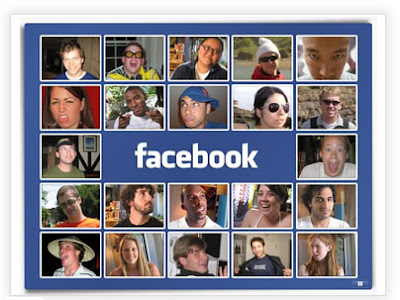Paul Ceglia, who claims in a lawsuit that he owns 84 percent of Facebook Inc., said his case wouldn’t have been possible if state troopers hadn’t come to his house in October to arrest him for fraud.
Ceglia’s arrest and a suit by New York Attorney General Andrew Cuomo two months later, both the result of complaints related to his startup wood-pellet business, got him looking through old files to find assets to pay back customers, he said in an interview in his home in Wellsville, New York. One of those files held a forgotten 2003 contract with Mark Zuckerberg, now chief executive officer of Facebook, he said.
Ceglia, 37, a self-described environmentalist from western New York who wants to legalize drugs and has views on the evils of central banks, claims the contract entitles him to most of the company. If true, the claim, which would give him control of the world’s most-popular social networking service, would be worth about $21 billion, given estimates of the company’s value.
“If this thing hadn’t happened the way it happened, no way I would have ever started looking through these ancient folders,” Ceglia said of his pellet problems. “That contract would just be sitting in there gathering dust.”
In the weeks since Ceglia came to public attention with his lawsuit against Palo Alto, California-based Facebook and Zuckerberg, filed June 30 in New York state court, observers have been asking why he took so long to make his claim. His answer, it turns out, was he forgot about it.
Facebook said a photocopy of the contract, filed as an exhibit to the lawsuit, is a phony.
‘Absurd’
“Ceglia’s claims are absurd and his lawsuit is frivolous, if not outright fraudulent,” Facebook said in an e-mailed statement. “Ceglia has refused to produce the original contract and the copy we’ve seen is a forgery, with inconsistent margin sizes, inconsistent font sizes, and other glaring discrepancies,” the company said.
Ceglia, one of whose lawyers said the original is in a safe place, said he is eager to take on Zuckerberg, 26, and let a jury decide whether the contract is genuine.
“I’m coming after him,” Ceglia said. “A deal’s a deal.”
Ceglia’s claim is based on a two-page “Work for Hire” contract he claims Zuckerberg signed in April 2003, when the Facebook CEO was an 18-year-old freshman at Harvard University. According to the copy of the contract, Ceglia agreed to pay Zuckerberg $1,000 to write computer code for StreetFax LLC, a company Ceglia said he was trying to get off the ground at the time. The alleged contract also refers to a $1,000 investment by Ceglia in a project named in one place as “The Face Book,” and as “The Page Book” in another.
Ownership Promise
In return, the alleged contract gives Ceglia a 50 percent interest in “the software, programming language and business interests derived from the expansion of that service to a larger audience.” Another provision, Ceglia claims, gives him an additional 1 percent interest for each day after Jan. 1, 2004, that the launch of “The Face Book” was delayed.
Ceglia said he has more evidence of his claim than just the contract.
“We e-mailed each other for more than a year,” he said.
Lisa Simpson, a
corporate lawyer for Facebook, said at a court hearing July 20 that Zuckerberg did sign some contract with Ceglia. Zuckerberg also worked for Ceglia on the StreetFax matter in 2003, she said.
What he didn’t do is sign over an interest in Facebook to Ceglia, she told U.S. District Judge Richard Arcara at the hearing. Facebook argued in court papers that Zuckerberg couldn’t have given Ceglia a share of a project he didn’t conceive of until the following year.
2004 Beginnings
Most book and journalistic accounts of Facebook’s short history say it was started in Zuckerberg’s Harvard dorm room in 2004 when he was a sophomore.
“Things change,” said Ceglia, standing outside the wood pellet-making shop he said he built himself, with the help of two local Amish men, in an enlarged two-car garage near his house. “Here I am in my little factory, and Zuckerberg is now a mogul. But it was a different story back in 2003.”
Ceglia said he found Zuckerberg by asking for bids for StreetFax coding work on Craigslist, the classified advertisement site. Zuckerberg was the low bidder, offering to do the work for $1,000, according to Ceglia. The two signed the contract at a hotel in Boston, he said. Ceglia claims that, in addition to the StreetFax work, Zuckerberg persuaded him to invest $1,000 in the “Face Book” idea.
By Aug. 6 the parties are scheduled to give Arcara a proposed order setting deadlines for Facebook to answer the complaint or move to dismiss it and for Ceglia to move to have the case sent back to state court.
Deadlines
Ceglia said he remembers the 18-year-old Zuckerberg as “probably one of the most difficult people that ever worked for me, in the sense that he simply could not finish his work. He just could not keep a deadline.”
Zuckerberg often made excuses for getting his work in late, including that he had to wash his father’s boat and that he’d left his laptop charger at home, Ceglia said.
“The work he did was really good,” Ceglia said. “He could code. I’d hire him today as a coder.”
Ceglia said he looks forward to a day when he might employ Zuckerberg again.
“If at some point in the future I start running Facebook, I guess I’m going to have to hire him to keep running the company,” Ceglia said. “I really don’t have much interest in it.”
After he filed his lawsuit, Ceglia did take enough interest in the company to sign up for a Facebook account on July 22, his birthday.
‘Great Service’
“I think it’s a great service,” he said.
Like many of the 500 million people who use Facebook, Ceglia said he’s gotten back in touch with some old high school friends.
“I like to think about myself as someone that is driven by trying to contribute in some way to increasing the consciousness on the planet,” Ceglia says on his Facebook page.
Ceglia said he’s surprised that his claim to own Facebook has gotten so much attention.
“I never expected it to get so much publicity,” said Ceglia. “It’s really gone sort of nuts.”
He said he mostly ignores the phone calls he’s been getting from journalists and radio talk-shows, such as those hosted by Howard Stern and Matthew Erich “Mancow” Muller.
“Once I picked it up because I thought I knew the number, and I’m like live on the Mancow show,” he said.
Wellsville
Ceglia, his wife Iasia, 31, and two sons, 6 and 7, live in a two-story, unpainted wood house on two acres near the top of a hill in Wellsville. The town, with a population of 8,200, is the biggest in rural Allegany County, about two hours drive southeast from Buffalo, where Ceglia’s suit against Zuckerberg and Facebook is pending in federal court after having been transferred from the state forum by Facebook.
Wellsville is also the hometown of Adelphia Communications Corp. founder John Rigas, whose Greek immigrant father started the Texas Hot restaurant that’s still open on Main Street. Rigas, 85, and his son Timothy Rigas were convicted in 2004 of conspiracy and securities fraud. John Rigas is serving a 12-year sentence in federal prison. Timothy is serving 17 years.
Ceglia said he and his wife started Allegany Pellets LLC in February with the goal of making pellets from reclaimed wood that could be used for environmentally friendly home heating.
“We felt like we had heard Obama’s call to help America become energy independent,” Ceglia said.
The Arrests
Nine months later, on Oct. 30, state police arrested the Ceglias at their home after receiving more than two dozen complaints from customers who said they’d paid for wood pellets but hadn’t received any. Paul and Iasia Ceglia were charged in state court with one count of first degree scheme to defraud and 12 counts of fourth degree grand larceny.
According to Cuomo’s office, which won a court order to shut the business down in December, the Ceglias took in $200,000 in prepaid orders from about 130 customers for 1,900 tons of pellets. Lawyers in the attorney general’s office said in a petition filed in state court that the Ceglias continued taking money and orders when they knew they wouldn’t be able to deliver as promised. They gave customers a series of fake excuses for why they weren’t getting their pellets, according to the petition. When they were arrested, Iasia Ceglia told police they’d filled only three orders and given refunds to 10 or 20 customers.
No Intent
The Ceglias claim they never intended to defraud anyone. They worked long hours trying to fill the orders and would have done so, if not for numerous mechanical failures, they said. They’re doing everything they can to pay back their customers’ money, they both said.
“I feel terrible,” Iasia Ceglia said. “We had many sleepless nights.”
Paul Ceglia said his pellet machines are now up and running. If Cuomo’s office would just let him start selling pellets again, he said he’d be able to pay the money back. For now, as he challenges Cuomo’s injunction, he’s working to mortgage property he owns to help pay for the refunds.
“The state’s really put us in a heck of a bind,” he said.
Ceglia, born in Wellsville in 1973, moved with his family to Ireland for six years as a child before returning to the town. As a senior at Wellsville High, he said he opened a video store in nearby Bath.
After high school, Ceglia said, he spent two years teaching at an alternative school in Taos, New Mexico, where kids studied whatever they chose and could vote to remove teachers. Back in Allegany County, he opened an ice cream stand in Scio, he said.
Another Arrest
In 1997 Ceglia was arrested in Carthage, Texas and pleaded guilty to possession of hallucinogenic mushrooms, according to court files. He was fined $15,000 and permitted to return to New York. He said he regretted the incident.
In recent years, Ceglia said he’s bought and sold real estate and constructed and renovated homes in Wellsville and the Bahamas. He helped start a non-profit environmentally friendly cemetery in Ithaca, New York, and was a founding member of the local Green Party, he said.
In 2001, Ceglia was contracted by a Massachusetts company, StreetDelivery.com, to photograph street intersections in New England, according to a civil complaint the company filed against Cegla in 2003 over rights to the pictures. StreetDelivery uploaded the photos from Ceglia and other photographers into a database, then sold Internet access to insurance companies investigating car accidents.
Florida Effort
Ceglia registered StreetFax in Nevada in 2003 and began trying to duplicate StreetDelivery’s business in Florida. In addition to Zuckerberg, Ceglia said he contracted with more than 20 workers, including Web designers, stenographers and photographers.
“We really struggled as a company,” Ceglia said.
“I don’t have much good to say about Ceglia,” Andrew Logan, StreetDelivery’s founder and CEO said in an interview. “He’s a nice enough guy, but man, he would talk one way and then do something completely different.”
Logan, who said StreetDelivery now does business in 27 states, claimed Ceglia was under contract to StreetDelivery in 2003 when he set up StreetFax and hired Zuckerberg. If Ceglia’s contract with Zuckerberg gives Ceglia an ownership interest in Facebook, that interest may belong to Logan, he said.
Logan, who called Ceglia “a real opportunist,” said his lawyers are looking at the old contracts and settlement papers with Ceglia.
“We’re going to lay claim that I own it,” said Logan. “He was under contract to me.”













